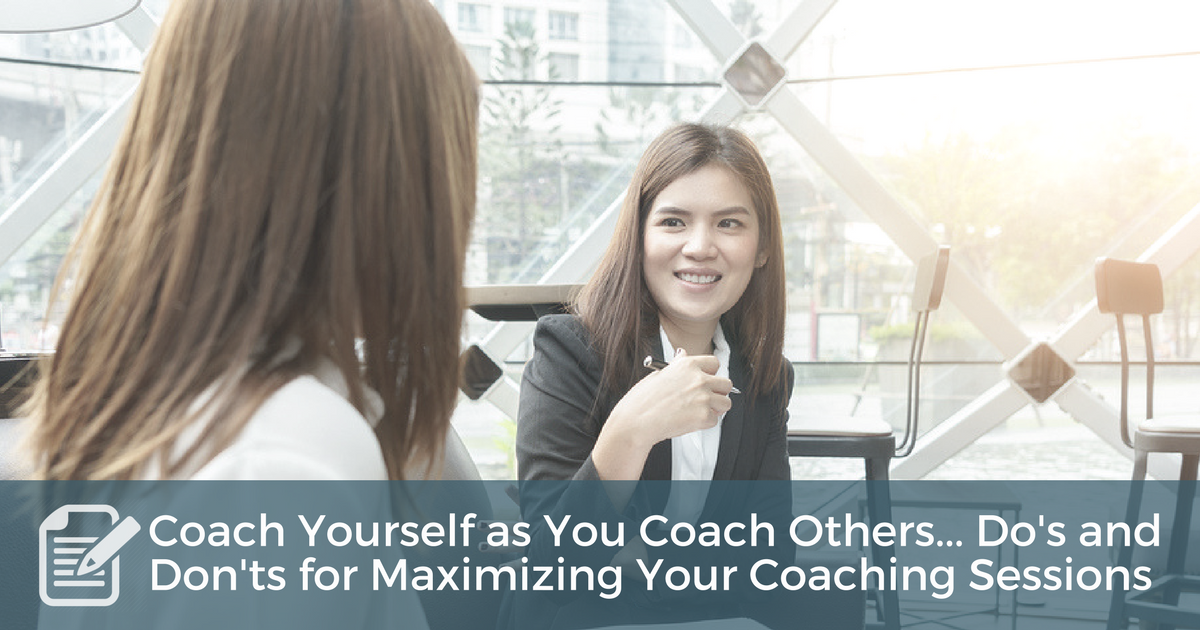
One of the unique characteristics of a coaching relationship – as distinct from other helping relationships – is the opportunity for the coach to learn and grow in the process of helping clients learn and grow. In most other helping relationships the “provider” of services is leveraging her/his superior experience, knowledge, or training to help the other person move forward, with little or no thought the how he/she could benefit from the relationship beyond gaining additional experience.
In contrast, coaching ASSUMES the coach is a co-learner in the process. Coaching, by its very nature, leads to growing and learning opportunities for the coach AND the client. One of the great joys of coaching someone else is the benefit I receive in my own personal growth. And when I’m open to, and expectant of, new learning and growth for myself, I always find it!
So…if it’s not only acceptable, but EXPECTED that you will learn and grow personally while you’re coaching someone else to do the same…what are some things to look out for? How do you maintain my primary purpose of helping your client move forward, while expecting to do the same yourself?
First, give yourself permission to notice what’s going in inside you – your own thoughts, your feelings, your emotions – when a client is dealing with a topic. As you mature in your coaching competencies you will find it easier to maintain focus on BOTH your client and yourself. This is true self-management for the coach. Just as you want to be aware of things inside you that might be affecting your coaching (which often carries a negative connotation), you want to also pay attention to the more positive things going on that might be giving you insight about yourself. Don’t be afraid to notice that you are feeling excited about a topic or that an idea has popped into your head for how you might handle a similar situation in your own life. You certainly want to be careful to not let those thoughts and feelings replace those of your client, but you can certainly notice the insights your are receiving for YOURSELF.
Next, continue to coach the person and not the issue – even when it comes to yourself. In other words, rather than focus on the topic or issue the client is dealing with, and how you might deal with such an issue yourself, think more broadly about how you might approach the issue – what beliefs would you need to change? What assumptions are you making? What might you need to know about yourself in order to resolve a similar issue? Just as you want to avoid diving into the details about your client’s issue, do the same for yourself when you gain those insights in a coaching conversation. Notice the broader internal issues rather than the external details of the topic. Once you let your mind start wandering (and wondering) about the specifics of the topic, you’ll find it more difficult to stay focused on your client. You can work out the details after the coaching session.
Third, remain clear about whose thinking is whose. Just as you don’t want to push your thoughts, feelings, emotions or insights onto your client, you don’t want to pull theirs onto yourself. We believe coaching works because people don’t wash rental cars….we tend to take care of our own stuff, including our ideas, hopes and dreams. And that is just as true for ourselves as it is for our clients. In order for the client to really move forward with power and purpose, the insights gained in a coaching session must be their own… AND in order for you to leverage the coaching conversation for your own learning and growth, the insights you take away must be your own. Don’t take on your client’s enthusiasm, anxiety, frustration, or clarity as if they are your own thoughts, feelings, or emotions. Support those in your client, but be careful not to import them into your own thinking. You wouldn’t want to replace your client’s thinking with your own, so don’t replace your own thinking with that of your client.
Coaching has such power at so many different levels. By design, the coach is a co-learner in the conversation/relationship. Don’t be afraid to pay attention to and explore your own growth and insights in those conversations. You’ll be a better coach for your client and a better client for yourself.



1 thought on “Coach Yourself as you Coach Others….do’s and don’ts for maximizing your coaching sessions”
Hi Bill! thanks again for sharing on this topic. Got a lot out of it , was very helpful and encouraging.
Thanks CAM!